Nyheter fra Pattaya - levert av Pattaya Mail
My RSS Feed
- Thai booze laws are still hit and missGovernment spokesman Jirayu Houngsub has linked the relaxation of alcohol laws on five Buddha holidays to the need to promote tourism because foreign arrival numbers continue to disappoint. It’s a partial pardon with international airports and hotels in the clear, together with the more ambiguous categories “places holding major events” and “nightlife venues in designated […]



Alcohol laws in Thailand always leave room for interpretation. Government spokesman Jirayu Houngsub has linked the relaxation of alcohol laws on five Buddha holidays to the need to promote tourism because foreign arrival numbers continue to disappoint. It’s a partial pardon with international airports and hotels in the clear, together with the more ambiguous categories “places holding major events” and “nightlife venues in designated areas”.
But alcohol still cannot be sold on Buddha days in restaurants, food halls and stalls, supermarkets or convenience stores. Borderline outlets include mama and papa stores which still abound throughout the country and have a proud record of ignoring restrictions on selling beer and whisky. The legal age for buying booze anywhere anytime remains at 20 years although the person serving it could be just 18.
The Thai Senate is currently considering whether retail booze sales should be legalized between 2 pm and 5 pm in the afternoon and after 11 pm. This rule of 1972 was introduced by a military government to dissuade workers from enjoying extended lunch hours, but has become largely redundant as the restriction doesn’t apply to bars, clubs, licensed restaurants and most hotels. Insiders say that the ancient junta edict is likely to be overturned in time for the next high season.
Unsightly booze hoardings in Cambodia are often removed by the police. (Photo: Mech Choulay) Advertising alcoholic drinks is decidedly a no-no in Thailand as no actual bottle or brand name can be shown. The companies selling Chang and Singha beers get round the ruling by promoting their own brands of water or coffee. The general idea is that you see an advert for non-alcoholic drinks and mentally make the connection with stronger stuff. So far no companies have been carpeted for their enterprise and initiative.
Thailand and all her neighbors continue to ban booze on election days, although the restrictions can be anywhere from 12 to 24 hours. But booze laws in other countries also have their peculiarities. In Cambodia, there is currently no minimum age for buying or consuming alcohol, but the police often tear down posters promoting beer brands even though they are not actually illegal. In the Philippines, it is actually illegal to drink alcohol whilst riding a horse, whilst in Laos you can be fined for buying a drink for an intoxicated person.
Further afield, Bolivian law specifies that a married woman is restricted to one glass of wine in public and, in El Salvador, you could be subjected to a firing squad for drunken behaviour. So we shouldn’t be too harsh on the odd inconsistency in Thai rules and regulations which, after all, are there to discourage excess. As Elizabeth Taylor once said, “Getting drunk isn’t a spectator sport because the whole family eventually gets to play.”

11 May 11 2025Featuredhttps://www.pattayamail.com/?p=500510 - Brunei Crown Prince begins private visit to Pattaya with royal familyPATTAYA, Thailand – Pattaya welcomed the arrival of His Royal Highness Prince Haji Al-Muhtadee Billah ibni Sultan Haji Hassanal Bolkiah Mu’izzaddin Waddaulah, Crown Prince of Brunei Darussalam, who is visiting Thailand on a private trip along with Her Royal Highness Princess Paduka Seri Pengiran Anak Isteri Pengiran Anak Sarah and their three children. The royal […]
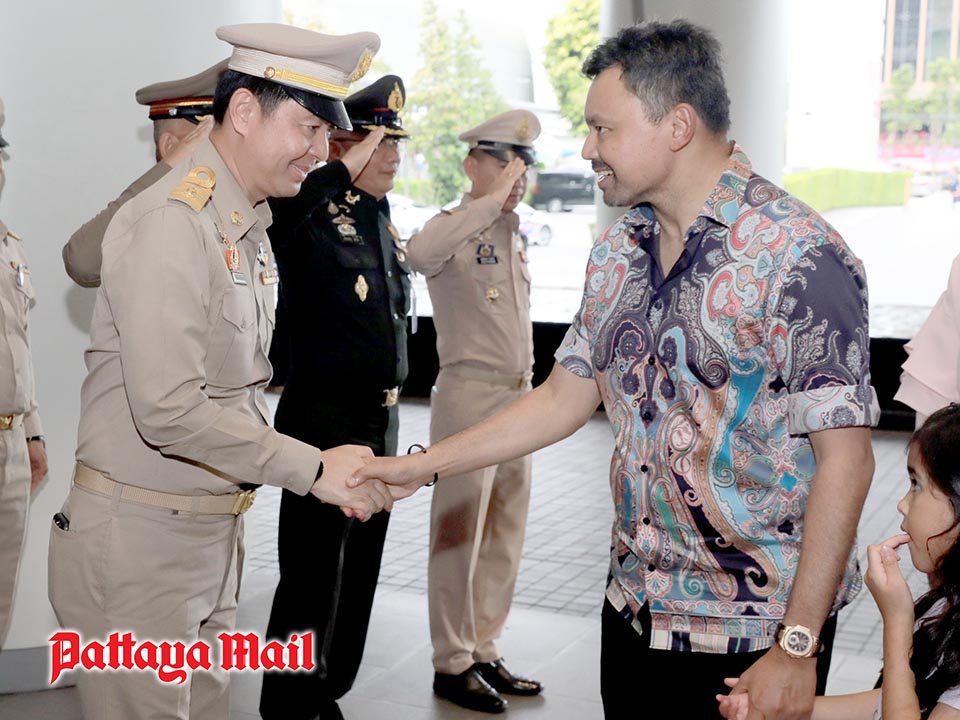


Pattaya Mayor Poramet Ngampichet and provincial officials greet the Crown Prince of Brunei and his royal family upon arrival at the Grand Centre Point Space Pattaya. PATTAYA, Thailand – Pattaya welcomed the arrival of His Royal Highness Prince Haji Al-Muhtadee Billah ibni Sultan Haji Hassanal Bolkiah Mu’izzaddin Waddaulah, Crown Prince of Brunei Darussalam, who is visiting Thailand on a private trip along with Her Royal Highness Princess Paduka Seri Pengiran Anak Isteri Pengiran Anak Sarah and their three children.
The royal family is staying at the Grand Centre Point Space Pattaya Hotel in Chonburi Province from May 10 to 14. The visit was coordinated through the Brunei Embassy in Bangkok and the Royal Thai Ministry of Foreign Affairs.
Local and provincial officials, led by Pattaya Mayor Poramet Ngampichet and Chonburi Deputy Governor Pongsathit Pichanant, were present to formally receive the royal guests. Other senior officials in attendance included Banglamung District Chief Patcharapat Sritanyanon, high-ranking police commanders, and representatives from local civil and military sectors, including the Chonburi Red Cross and the Interior Ministry Women’s Club.Security and protocol arrangements have been heightened to ensure the safety and privacy of the Brunei royal family during their stay. Their visit highlights the ongoing warm diplomatic ties between Thailand and Brunei Darussalam.

His Royal Highness Prince Haji Al-Muhtadee Billah begins his private family visit to Thailand, strengthening long-standing relations between Brunei and Thailand. 
Senior officials from Chonburi province, military units, and the Red Cross join the formal welcoming ceremony for the visiting Brunei royals.
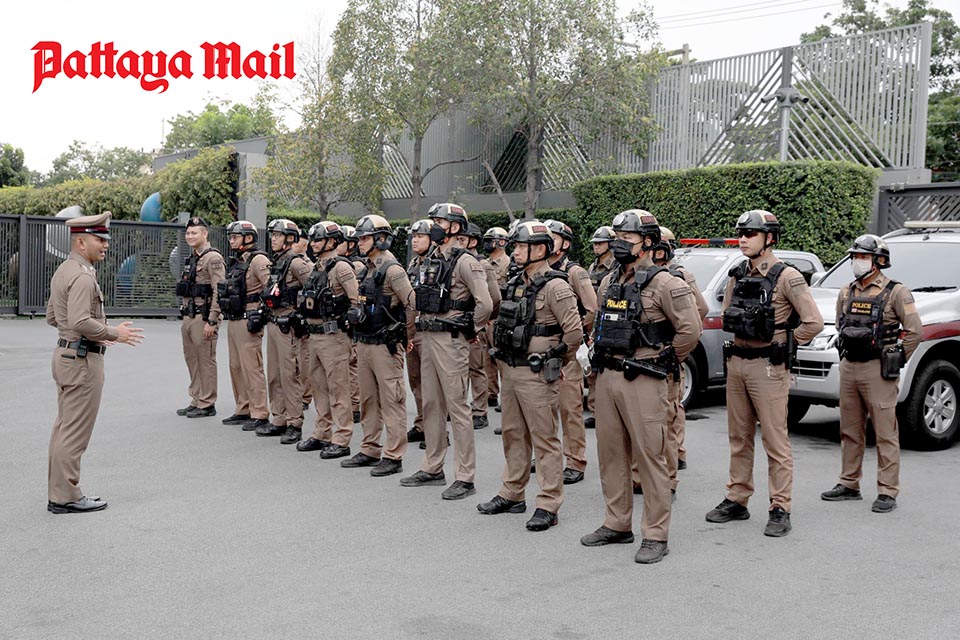
Authorities ensure enhanced security and protocol measures around the Grand Centre Point Space Pattaya during the royal family’s multi-day visit.
11 May 11 2025Pattayahttps://www.pattayamail.com/?p=500503 - Under the Coconut Trees – Pattaya’s struggle to reclaim its beachfront from shadowy dealsPATTAYA, Thailand – As twilight falls over Pattaya Beach, the shoreline sparkles under neon lights and the rhythmic hum of nightlife pulses through the air. Families stroll with ice creams, tourists pose for sunset selfies, and vendors prepare for another night of business. But tucked beneath the swaying coconut trees, in the shadows between lamp […]



Undercover officers raid beachfront hot spots, detaining 13 foreign women suspected of illegal solicitation. PATTAYA, Thailand – As twilight falls over Pattaya Beach, the shoreline sparkles under neon lights and the rhythmic hum of nightlife pulses through the air. Families stroll with ice creams, tourists pose for sunset selfies, and vendors prepare for another night of business. But tucked beneath the swaying coconut trees, in the shadows between lamp posts, a quieter, darker commerce often unfolds — one that has long haunted the city’s reputation.
On the evening of May 8, that shadow was pulled into the light.
In an operation nicknamed “Soi Phee Maprao” or “Coconut Tree Sweep,” more than 50 officers from multiple agencies — tourist police, immigration, social development officials, and city hall — fanned out across the beach in a synchronized strike. Dressed in uniforms and plainclothes, they moved with precision, targeting foreign women suspected of offering illegal services to tourists.
For weeks, residents had raised alarms. Women — many believed to be from Eastern Europe and Africa — were frequently seen loitering along Beach Road, often under the same coconut trees. They’d wave, smile, and make friendly conversation. Sometimes, they’d go further. Underneath the beach’s cheerful surface, a covert industry was chipping away at Pattaya’s efforts to rebuild its global image as a world-class destination.As undercover officers observed and approached, suspicions quickly turned to confirmations. In many cases, conversations ended with offers — discreet, but direct. When searches were carried out, officers found packets of lubricants, a variety of condoms, and no clear signs of legitimate employment or residence.
Thirteen women were taken into custody: seven from Uzbekistan, six from Uganda. Some held student visas, though none were enrolled in school. Two were found to be overstaying their visas. All were charged under Section 5 of Thailand’s Prostitution Act, which forbids soliciting in public areas. Immigration authorities have already begun the process of revoking visas and initiating deportations.
“This is about restoring confidence and reclaiming our beachfront,” said Police Lt. Col. Torlap Tinamat, who led the operation. “We cannot allow illegal activities to persist in the heart of one of Thailand’s most iconic tourist zones.”The crackdown isn’t just about law enforcement — it’s part of a broader battle for Pattaya’s identity.
The city has recently undergone visible transformation: The Bali Hai Pier, once worn and weathered, now gleams with polished walkways and elegant lighting, drawing admiration from both locals and tourists. Roads are being resurfaced. Power lines are being buried underground. Drainage systems are being modernized. All this is part of a city-wide plan proudly described by Pattaya City Hall:
“The heart of urban development is the people. Every road will be improved once infrastructure work is completed. It’s all in the city’s master plan — we do what we say.”
And yet, amid the progress, frustration simmers.

Pattaya authorities target foreign illegal workers in high-profile raid to restore city’s global tourism image. Some locals question priorities:
“What about the potholes on major intersections like South Pattaya or Thepprasit Road?” asked one resident on social media. “Fix the roads before the fountains.”
Others, however, applaud the strong, visible leadership:
“This is what we need — proactive, honest work that makes a difference,” said one comment under a city hall post. “Young leaders, keep going.”
But no matter which side people stand on, few deny the importance of confronting issues like foreign prostitution — not just for legal reasons, but for public safety, dignity, and the image of Thailand as a whole.
Authorities emphasized that the fight isn’t over. More inspections are coming. And residents are being urged to help:“If you see something suspicious, say something. Call Tourist Police at 1155, 24 hours a day,” a city spokesperson reminded the public.
For now, the beach glows a little brighter, and the coconut trees sway just a little more peacefully. But beneath the surface, the city knows — this is only one of many battles on the road to a safer, cleaner, and more respected Pattaya.

As the city modernizes, officials confront long-standing issues of illegal solicitation threatening Pattaya’s reputation.
11 May 11 2025Pattayahttps://www.pattayamail.com/?p=500495 - Heavy storm hits Pattaya, rips roofs and walls, topples trees, causing traffic disruptionsPATTAYA, Thailand – A fierce storm swept through Pattaya on Saturday evening, causing significant damage across several areas, particularly around Jomtien Beach and Naklua. Powerful winds toppled large trees and brought down walls and roofs, obstructing roads and making travel hazardous in parts of the city. Local authorities responded swiftly to manage the aftermath. At […]
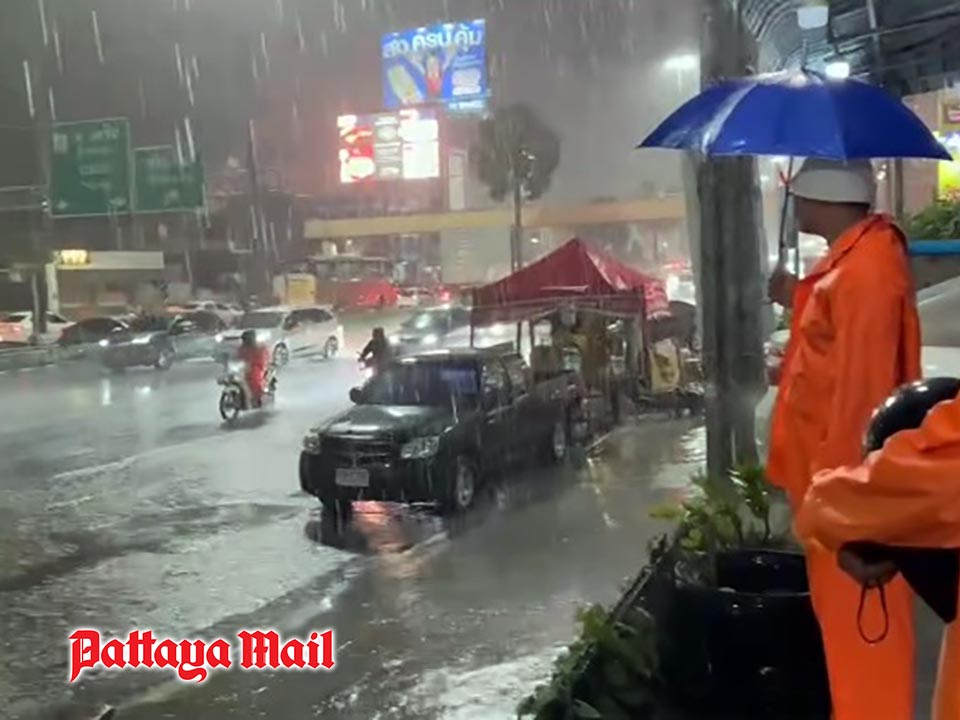


South Pattaya’s Sukhumvit area saw the swift operation of water pumps, allowing traffic to resume normally. PATTAYA, Thailand – A fierce storm swept through Pattaya on Saturday evening, causing significant damage across several areas, particularly around Jomtien Beach and Naklua. Powerful winds toppled large trees and brought down walls and roofs, obstructing roads and making travel hazardous in parts of the city. Local authorities responded swiftly to manage the aftermath.
At Jomtien Beach, the collapse of walls and roofs led to the closure of access roads within the Jomtien Free Zone-Dong Tan for safety purposes. Authorities worked quickly to clear the debris and secure the area. ‘The wind was extremely strong, and it caused significant damage. We had to close the roads for safety while waiting for cleanup operations to begin,’ said a local official.
Meanwhile, in Naklua, large trees were uprooted and blocked roads. The municipal staffs were immediately dispatched to clear the fallen trees and ensure public safety in the area.As part of the ongoing efforts, officials in South Pattaya’s Sukhumvit area began operating water pumps to clear floodwaters, allowing traffic to resume as normal. “With the water pumped out, traffic has returned to normal,” an official stated.

Jomtien Beach faced road closures after the storm caused collapsed walls and roofs, obstructing traffic. Residents took to social media to share their experiences and express concerns about the storm’s aftermath. One local commented, “I couldn’t even get through the beach area. Nature’s forces are unpredictable, and we need to stay vigilant.”
Another person asked, “Is there a power outage along Jomtien Beach too? When will the electricity be restored?” Several others shared their own worries, such as, “The storm’s intensity made me wonder if the banana tree at my house will fall!” and “In Soi Bunnak, it’s the same situation, now waiting to see how much damage the storm caused.”While the storm has passed, the recovery and cleanup efforts are still underway, and authorities continue to monitor the situation. As the region braces for possible further weather disruptions, locals and tourists alike are urged to stay safe and heed official advisories.
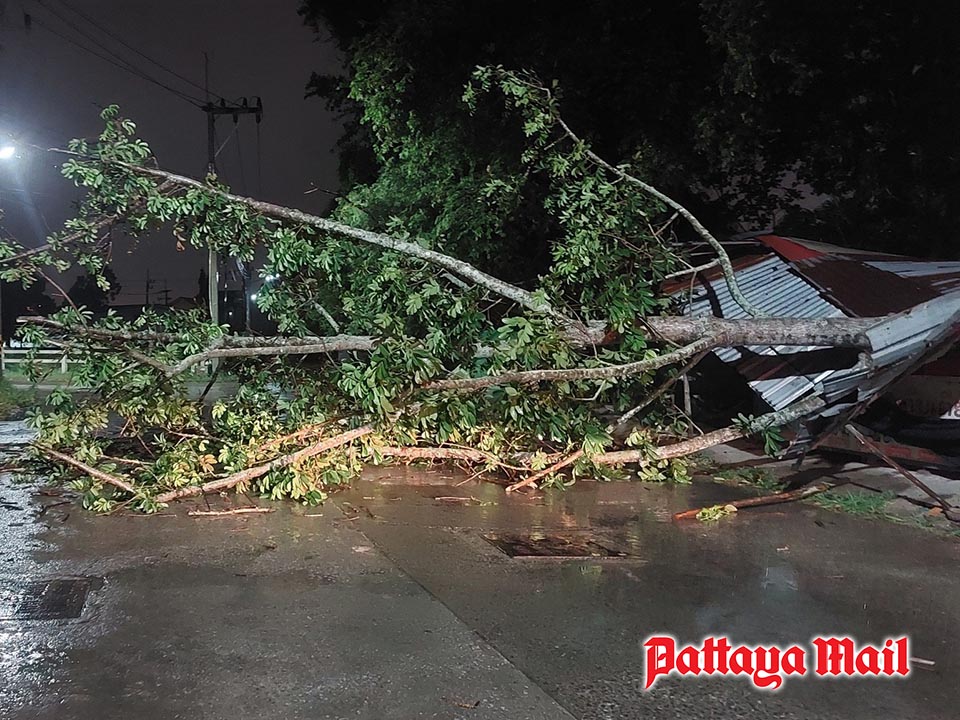
Strong winds uprooted large trees in Naklua, prompting municipal staff to clear roads and ensure safety. 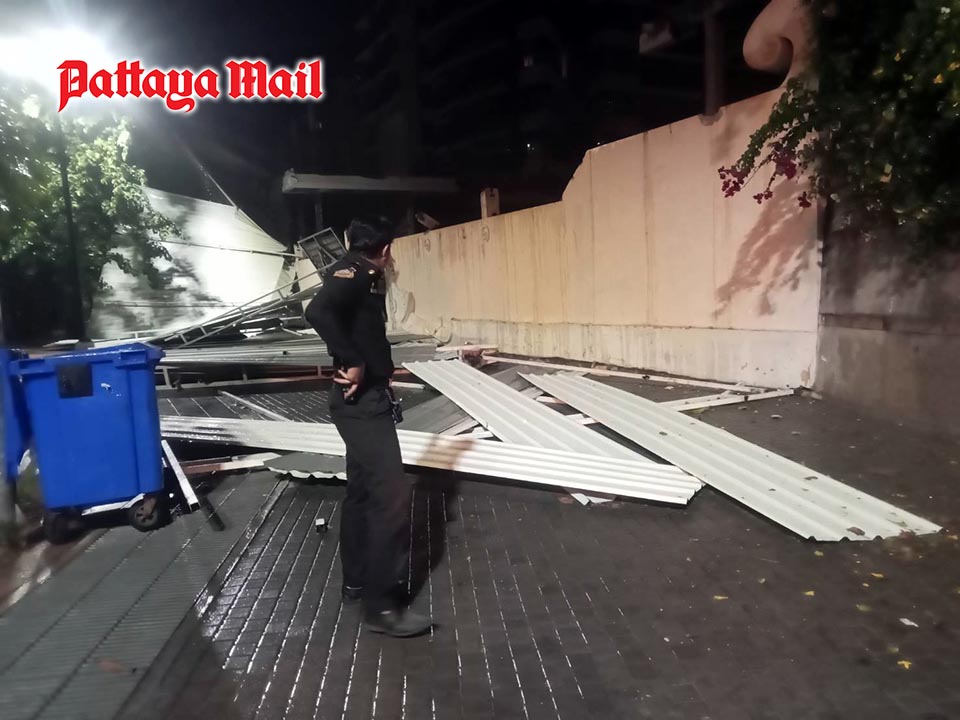
Residents share concerns about storm damage, including fallen trees and power outages in Pattaya. 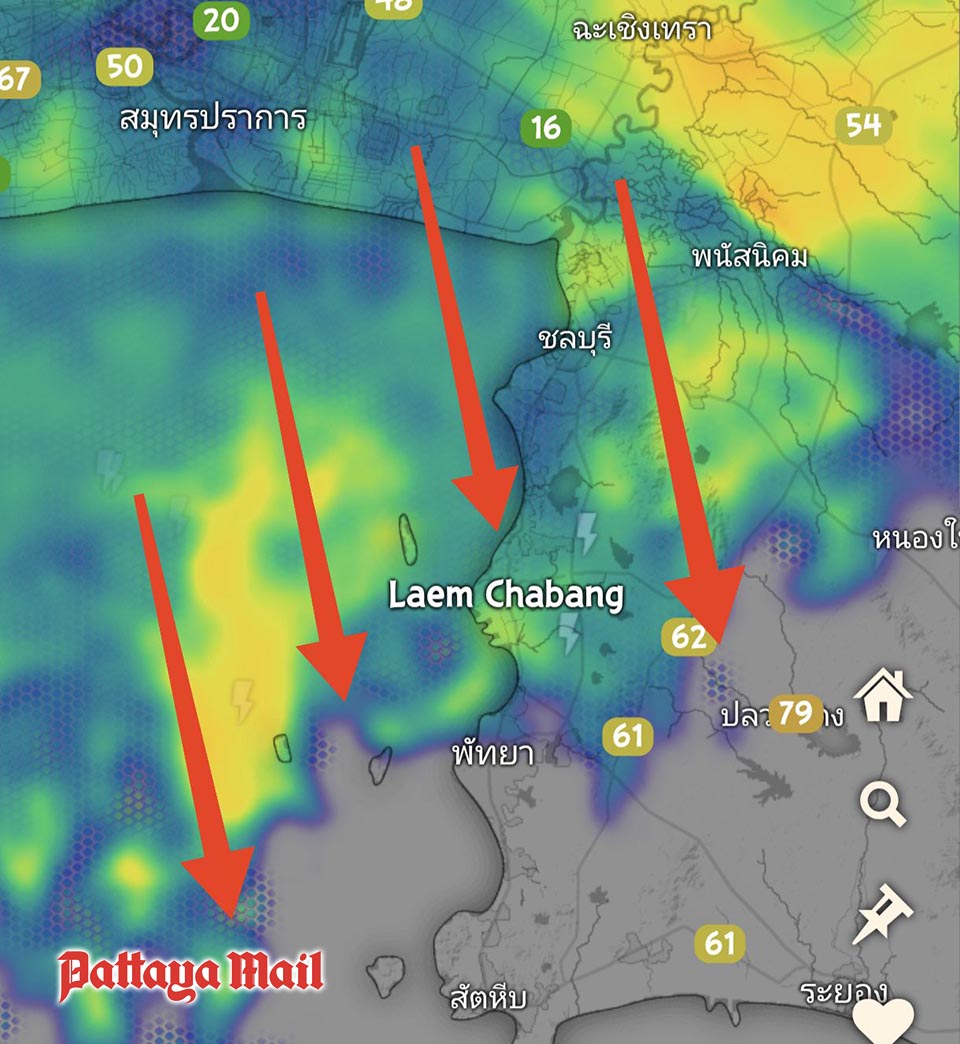
Residents flooded social media with concerns, from fallen trees to power outages and blocked roads across Pattaya — with many fearing the storm is here to stay for a few more days.
11 May 11 2025Featuredhttps://www.pattayamail.com/?p=500483 - The deep root causes of foreigners being betrayed in Pattaya and beyond — if it’s not just about age gapsPATTAYA, Thailand – In tourist hotspots like Pattaya, Phuket and even in Isaan region, many foreigners find themselves betrayed by individuals they once trusted. The stories are often tied to scams, emotional manipulation, and abandonment in the midst of what appeared to be relationships full of hope. The blame is often placed on age-gap relationships, […]
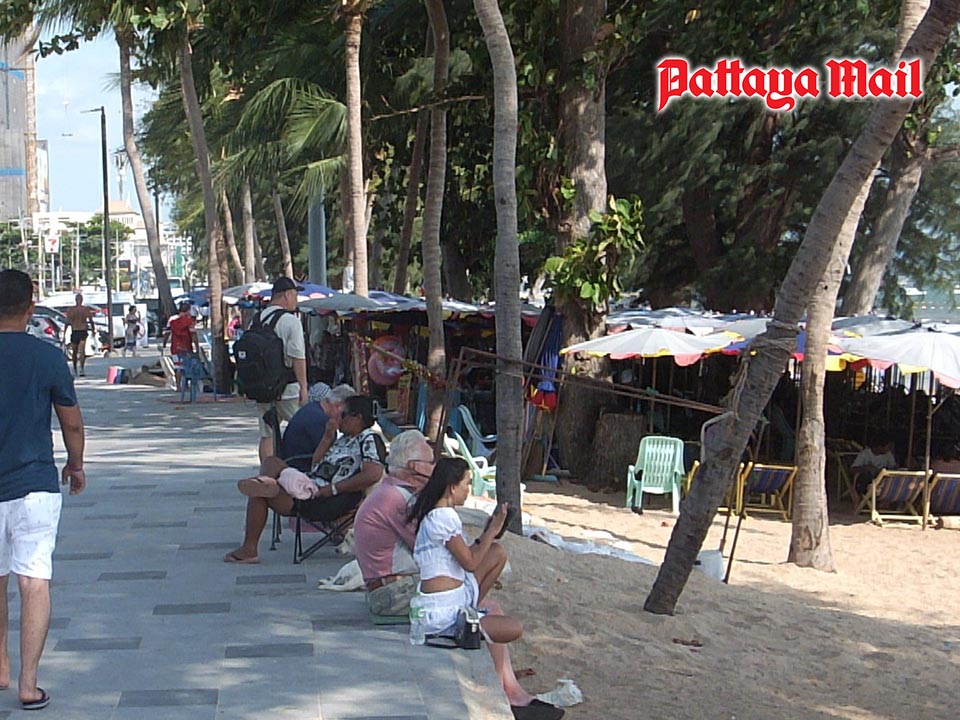


Blaming age differences or cultural gaps oversimplifies the problem—what truly matters is addressing the structural vulnerabilities that make foreigners easy targets for exploitation. (Photo – Jomtien Beach in April) PATTAYA, Thailand – In tourist hotspots like Pattaya, Phuket and even in Isaan region, many foreigners find themselves betrayed by individuals they once trusted. The stories are often tied to scams, emotional manipulation, and abandonment in the midst of what appeared to be relationships full of hope. The blame is often placed on age-gap relationships, with discussions pointing to the vulnerabilities of older foreign men. But when we dig deeper into these situations, the problem becomes much more complex than simply pointing fingers at age differences or cultural misunderstandings.
Age-Gap Relationships: A Convenient Scapegoat?The age-gap dynamic in romantic relationships between foreign men and Thai women is often the first to be scrutinized in conversations around betrayal. It’s a narrative that often defaults to blaming the older foreigner, implying they should have known better or were somehow ‘asking for it.’ But this perspective fails to address the full picture. While there may indeed be risks in any relationship, the issue lies deeper in manipulation, opportunism, and the lack of support systems, not just the age of the individuals involved.
As one observer points out, “the older the woman, the greater her scamming skill and level of contempt, if that’s the path she chooses.” This isn’t to say that all older Thai women are manipulators or malicious, but it highlights a reality: age doesn’t equate to innocence, and older women—Thai or foreign—can sometimes be more skilled in manipulation when they choose to exploit the situation. Character, not age, is what defines how someone will act in a relationship.
Vulnerability and Isolation: The True Causes of ExploitationWhat often goes unrecognized is how vulnerable foreigners become when they’re isolated in a foreign country. Language barriers, cultural misunderstandings, and the lack of a supportive network create an environment ripe for exploitation. Foreigners, especially those without strong local ties or legal protections, are easy targets for individuals who seek to manipulate them emotionally or financially. The isolation they experience in a foreign land makes it harder to identify red flags or seek help when things go wrong.
As noted, “Unfairness during/after breakups is hardly unique to Thailand. But the isolation of foreigners here can make it more harmful than when similar events occur ‘back home.’” In many cases, foreigners find themselves alone, without the immediate access to support systems or legal recourse they might have in their home country. This isolation exacerbates the damage of betrayal and makes it harder for them to recover from such experiences.
Beyond the Age Gap: The Real Issue is Power Dynamics and Lack of ProtectionThe notion that age-gap relationships are inherently problematic is a simplistic view that often overlooks the true dynamics at play. Manipulation and exploitation are driven by power imbalances and a lack of adequate protection for foreigners. As one commenter points out, “if a man was kicked out of his own home with no explanation and left homeless, that’s not ‘poor judgment’ — that’s abuse.” When this happens, the gender of the person affected is irrelevant; it’s about the manipulation of power and the abuse of trust.
This issue is especially apparent in the context of Thailand, where foreigners—often isolated by language and culture—are left without sufficient legal and social protection. Whether it’s financial manipulation, emotional abuse, or outright scams, the lack of structural support leaves many foreigners vulnerable to betrayal.
The Need for Accountability and Support SystemsRather than blaming age differences or cultural gaps, we must focus on the power dynamics that perpetuate exploitation. Foreigners in Thailand—especially those with limited local connections—are at an increased risk due to their isolation. Legal protections are often limited, and there’s little in place to support these individuals when they find themselves in abusive or manipulative situations.
Moreover, many of the public reactions in Thailand are rooted in a simplistic narrative that older foreign men are inherently at fault for their own misfortune. This view ignores the deeper issues of manipulation, exploitation, and the lack of effective protection systems. Instead of focusing on cultural differences or the age of the parties involved, we need to address these structural vulnerabilities and work toward creating a safer environment for all.
While age-gap relationships may carry risks, they are not the root cause of exploitation and betrayal. The real issue lies in the isolation of foreigners, the manipulation they may face, and the lack of support systems available to them. Instead of blaming age or cultural differences, we need to look at the power dynamics and exploitative practices that make these situations so dangerous for those caught in them. Only then can we start to address the deeper, uncomfortable truths about how vulnerable foreigners are in Thailand and work toward real solutions.
11 May 11 2025Pattayahttps://www.pattayamail.com/?p=500477 - Strong Baht, Shaky Strategy – Expats lose faith in Thailand’s tourism directionPATTAYA, Thailand – As Thailand reports a surge in tourist arrivals amid a strong Thai baht, many long-term foreign residents are expressing growing skepticism about the government’s tourism policies, questioning whether the current momentum will last through the upcoming winter season. Online expat communities have been vocal, with some calling Thailand’s tourism strategy inconsistent and […]
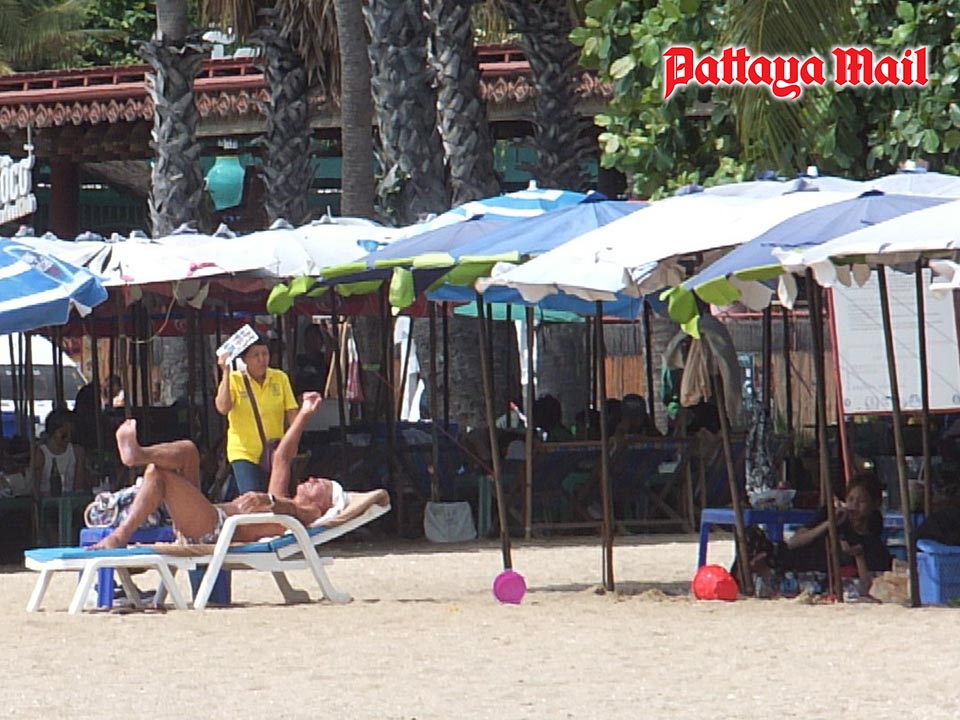


Unshaken Currency, Shaken Confidence – As the Thai baht strengthens, long-term expats question whether the country’s tourism policies are built to last. (File Photo – Pattaya Beach in May) PATTAYA, Thailand – As Thailand reports a surge in tourist arrivals amid a strong Thai baht, many long-term foreign residents are expressing growing skepticism about the government’s tourism policies, questioning whether the current momentum will last through the upcoming winter season.
Online expat communities have been vocal, with some calling Thailand’s tourism strategy inconsistent and unreliable. After months of concerns over a supposed tourism downturn, the country is once again experiencing an influx of visitors — but not everyone sees this as a sign of long-term recovery.
“Typical. After crying that Thailand faces a tourist downturn — actually, it was a mistake — people flock to the country like a night fly to the light,” one commenter noted. “Only good news in the Kingdom of Make-Believe. That’s a book, actually.”Critics argue that the Thai government frequently shifts its messaging and policies. “News is same as day and night every time. Thailand doesn’t have any strategy in travel industry. One time invites all tourists and after wanting to invite only high level tourists. But service is all time same,” another expat wrote.
Adding to the uncertainty is the continued strengthening of the Thai baht, which many say is making Thailand a less affordable destination compared to neighboring countries like Vietnam, Cambodia, and Indonesia. As these countries offer lower costs and more stable currency exchange rates, Thailand risks pricing itself out of the budget travel market.
Changes to immigration policies have also stirred anxiety. Proposals to limit or eliminate the 60-day visa-free extension for tourists have led to fears that Thailand may lose a large segment of European travelers. “Wants tourists but also wants to change 60 days visa free extension. What a joke if they will do — lost others travelers from Europe,” one expat said.Long-term residents continue to criticize the burdensome reporting requirement, calling it outdated and needlessly bureaucratic. “Not to mention the stupid 90 days report, what a joke,” another added.
Adding to the frustration is a perception that Thailand prioritizes wealthy short-term visitors over its loyal base of long-staying foreigners. One sarcastic remark summed up the sentiment: “Visas for wealthy high school students whose parents need a break? Bla bla bla — same story again and again.”While Thailand remains a top destination for global travelers, concerns from its long-stay expat population highlight a disconnect between short-term tourism gains and long-term confidence in government planning — particularly as regional competitors become more attractive by comparison.
11 May 11 2025Pattayahttps://www.pattayamail.com/?p=500474 - Strong Thai baht makes U.S. dollar-dependent Cambodia a more predictable and affordable tourism optionPATTAYA, Thailand – The recent appreciation of the Thai baht against the U.S. dollar is proving to be an unexpected advantage for Cambodia’s tourism industry, according to Cambodian media reports on May 9. As Cambodia continues to rely heavily on the U.S. dollar, the stronger baht is making the country a more cost-effective destination for […]



A stronger Thai baht is pushing regional tourists to look at Cambodia as a more affordable destination. PATTAYA, Thailand – The recent appreciation of the Thai baht against the U.S. dollar is proving to be an unexpected advantage for Cambodia’s tourism industry, according to Cambodian media reports on May 9. As Cambodia continues to rely heavily on the U.S. dollar, the stronger baht is making the country a more cost-effective destination for travelers in the region.
On Friday, the exchange rate opened at 32.65 baht to the U.S. dollar, strengthening from 33.05 the day before. Analysts predict the trading range for the week will hover between 32.75 and 33.35. The strengthening baht, driven by global uncertainty, rising gold prices, and ongoing trade tensions, poses challenges for Thailand’s tourism competitiveness within ASEAN, particularly against countries like Vietnam, Malaysia, Indonesia, and Singapore.
Experts note that Cambodia now offers significant advantages. With tourism products priced in U.S. dollars and inflation relatively under control, Cambodia becomes a more predictable and affordable option compared to neighboring countries where prices are rising and local currencies are used.The strengthening baht is causing Thai travel packages to become more expensive, potentially steering price-conscious travelers toward Cambodia, where tour prices have remained stable. Meanwhile, the new international airport in Phnom Penh is expected to further boost Cambodia’s connectivity and its post-pandemic tourism recovery.
However, the situation is not without drawbacks. Cambodian travelers planning trips to Thailand face higher conversion costs, as both the Cambodian riel and U.S. dollar weaken against the baht. At the same time, reports from Thailand indicate that local businesses, including budget accommodations, food stalls, beer bars, and cafés, are beginning to feel the impact of reduced tourist spending due to the baht’s strength.

Cambodia benefits from dollar-based pricing, which offers stability amid currency shifts in Southeast Asia.
11 May 11 2025Pattayahttps://www.pattayamail.com/?p=500470 - Is it acceptable to hit Indian tourists with sticks for walking on Pattaya roads? Heated debate erupts after viral clipPATTAYA, Thailand – A wave of controversy has erupted online after a video clip surfaced showing two Thai men riding a motorcycle and striking Indian tourists with a stick, allegedly because they were walking in the road instead of on the sidewalk. The footage has ignited fierce debate among Pattaya locals and Thai netizens, with […]
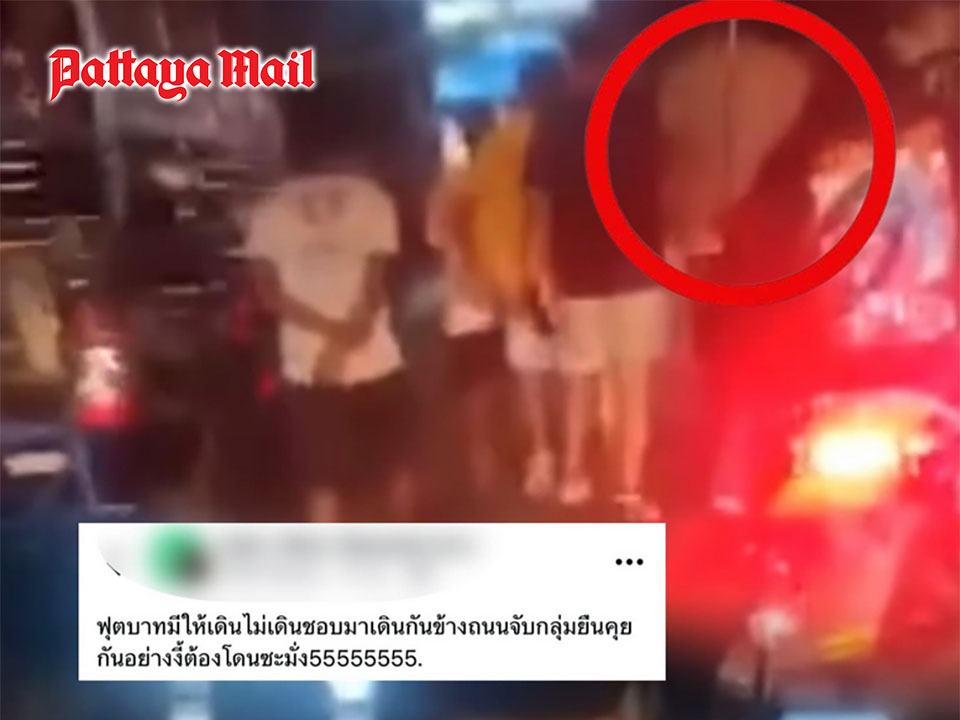


Stick Justice or Street Harassment? Viral clip of Thai men striking Indian tourists sparks outrage and debate in Pattaya. PATTAYA, Thailand – A wave of controversy has erupted online after a video clip surfaced showing two Thai men riding a motorcycle and striking Indian tourists with a stick, allegedly because they were walking in the road instead of on the sidewalk. The footage has ignited fierce debate among Pattaya locals and Thai netizens, with opinions sharply divided over whether the act was justified or unacceptably violent.
The 42-second clip was first posted in a Facebook group popular with Pattaya motorbike drivers. The user who uploaded it captioned the post: “There are sidewalks, but they won’t use them. Always walking in the road and chatting in groups like this — they deserve it 55555555.” In the clip, two Thai men can be seen riding a motorcycle without a license plate. The passenger on the back seat is holding what appears to be a cane or a stick, and as they pass a group of Indian tourists walking beside the road, he suddenly reaches out and strikes one of them on the back.
The video rapidly spread across social media, attracting a flood of comments. A large portion of users appeared to support the men on the motorbike, arguing that tourists should respect Thai laws and norms. Many even jokingly referred to the man with the stick as a “village representative” doing what others wished they could do.On the evening of May 9, reporters visited the area where the incident took place, near Soi 18 on Pattaya Second Road — a route leading toward Phra Tamnak Hill. There, they met Kamsorn, a hotel security guard. After watching the clip, Kamsorn expressed disapproval of the act, stating that violence is never the answer and that issues like this should be solved through polite conversation and mutual understanding. He explained that many Indian tourists tend to walk on the road, particularly at night when foot traffic increases and sidewalks may be congested.
A local motorcycle delivery driver interviewed nearby took a very different stance. He voiced support for the action in the video, claiming that Thai law prohibits pedestrians from walking on roads when sidewalks are available. “When you come to Thailand, you must follow Thai rules,” he insisted.Laxman Singh, President of the Indian Association Pattaya, later addressed the issue and acknowledged that Indian tourists often have a cultural tendency to walk on roads, as it is common in India for drivers to use their horns to alert pedestrians. He added that many tourists feel unsafe using sidewalks in Pattaya, particularly in the South Pattaya area, due to poor lighting, narrow pathways, and unfamiliar surroundings.
While recognizing that locals may feel frustrated, he urged everyone not to resort to violence. “Indian tourists are guests in Thailand. As locals, we are the hosts. If something like this happens, let’s kindly explain and ask them to use the sidewalk. There’s no need to hurt anyone,” he said.
Despite calls for understanding, the online reaction continued to intensify, with many Thai social media users doubling down on their frustration. Numerous comments expressed dissatisfaction with Indian tourists frequently ignoring traffic rules, blocking lanes, and refusing to move even when honked at. Some users criticized tour guides or others responsible for failing to educate the tourists, while others resorted to sarcastic remarks and xenophobic undertones. The overall sentiment highlighted a growing cultural divide and increasing impatience with what some perceived as disrespectful behavior by certain foreign visitors.
The video has sparked calls for both improved tourist education and greater enforcement of pedestrian rules. However, it has also raised concerns about escalating hostility toward tourists, particularly in one of Thailand’s most tourism-dependent cities. Authorities have yet to make a formal statement regarding the incident, and it remains unclear whether any legal action will be taken against the individuals involved in the video.As the debate continues, it has highlighted long-standing tensions between local residents and certain tourist behaviors, as well as the need for clearer communication, mutual respect, and responsible conduct from all parties in one of the world’s most visited beach destinations.
11 May 11 2025Pattayahttps://www.pattayamail.com/?p=500500 - Thailand’s Tourism Crossroads – Chasing high spenders or embracing mass tourism again?PATTAYA, Thailand – As Thailand basks in the glow of a renewed tourism surge, a deeper question is stirring both within government circles and among long-term foreign residents: Should the country chase the numbers once more, or shift gears and focus on attracting peace-loving, high-spending European tourists? After years of promoting mass tourism, the Thai […]
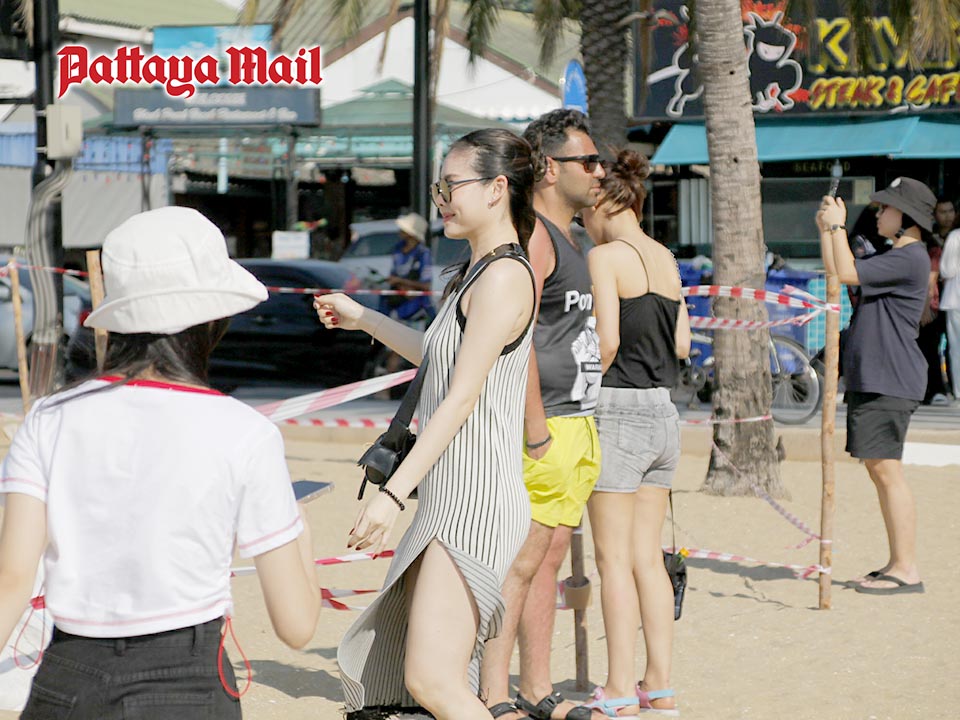


With fewer Chinese tourists since January, Thai officials are pivoting toward sustainable, high-value tourism—promoting wellness retreats and eco-experiences over crowded party scenes. PATTAYA, Thailand – As Thailand basks in the glow of a renewed tourism surge, a deeper question is stirring both within government circles and among long-term foreign residents: Should the country chase the numbers once more, or shift gears and focus on attracting peace-loving, high-spending European tourists?
After years of promoting mass tourism, the Thai government is now signaling a pivot. The Tourism Authority of Thailand (TAT) recently laid out a strategy for 2024–2025 that centers on “high-value and sustainable tourism.” This isn’t just a slogan. Authorities are promoting long-stay, big-spending visitors over the pre-pandemic model of sheer volume. In a bid to lift per-visitor revenue and reduce the burden on popular destinations like Pattaya and Phuket, the strategy is shifting toward smaller tourist volumes but with higher spending potential.
Officials point to improved digital infrastructure, new wellness travel packages, and the promotion of lesser-known provinces as key tools in achieving this goal. But not everyone is convinced. In expat forums and online communities, skepticism remains. “Thailand wants quality tourists, but keeps doing quantity planning,” wrote one longtime European resident. Others note the inconsistency in visa policies, with recent proposals to cancel the 60-day extension option sparking fears that retirees and long-stay visitors are no longer welcome.The government’s recalibration comes as it quietly grapples with an underwhelming return of Chinese tourists—once Thailand’s largest visitor group. Since the start of 2025, official figures have shown a noticeable decline in Chinese arrivals compared to expectations. Concerns over safety, a sluggish Chinese economy, and competition from visa-free destinations in Southeast Asia have all played a role in the downturn. In response, Thai authorities are diversifying their focus, hoping to strengthen ties with European markets instead.
The broader tourism strategy also includes improved regional connectivity—especially by land—with future high-speed train links from China and ASEAN neighbors expected to encourage longer, more integrated travel. Simultaneously, Thailand is embracing sustainable tourism initiatives like carbon neutrality goals and community-based ecotourism, aiming to stand apart from cheaper rivals like Vietnam or Cambodia.The TAT’s revised focus is already visible in marketing campaigns that highlight cultural experiences, heritage tours, and wellness retreats rather than shopping malls and full-moon parties. While Thailand still hopes to welcome 40 million tourists in 2025, it’s clear that the definition of a “good” tourist is being rewritten—one spa treatment, eco-village visit, and Michelin-rated meal at a time.
10 May 10 2025Daily Newsletterhttps://www.pattayamail.com/?p=500480 - Pattaya’s revamped Bali Hai Pier shines bright, earning praise and public requestsPATTAYA, Thailand – The newly revamped Bali Hai Pier is capturing hearts and camera lenses alike, especially after dark when the upgraded lighting and modern design elements create a breathtaking nighttime atmosphere. Pattaya residents and visitors alike are applauding the transformation, calling it a symbol of the city’s forward-looking development efforts. Pattaya City Hall proudly […]
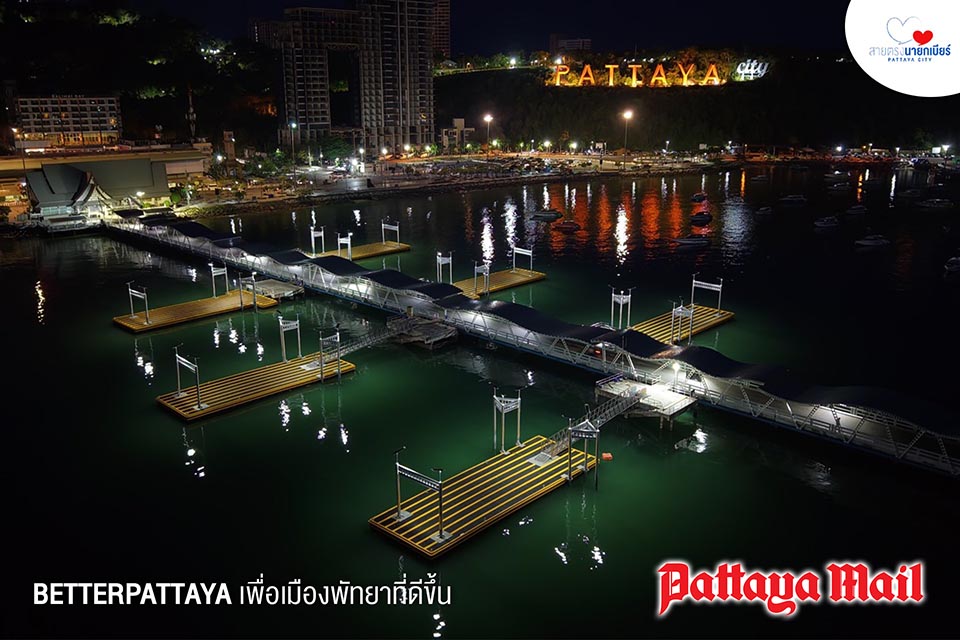


Bali Hai Pier sparkles at night! Locals praise the beautiful transformation as part of Pattaya’s ongoing city development plan. PATTAYA, Thailand – The newly revamped Bali Hai Pier is capturing hearts and camera lenses alike, especially after dark when the upgraded lighting and modern design elements create a breathtaking nighttime atmosphere. Pattaya residents and visitors alike are applauding the transformation, calling it a symbol of the city’s forward-looking development efforts.
Pattaya City Hall proudly shared images of the revitalized pier, highlighting its role as a gateway to nearby islands and a new landmark for evening strolls and sightseeing. “Urban development starts with the people at its heart,” City Hall declared in a post, adding, “This is just one of many projects underway.”
The pier’s overhaul is part of a broader citywide plan that includes road resurfacing, underground utility installation, and improved drainage systems. Upcoming projects will focus on key roads such as Pattaya Second Road and the railway-parallel route, with a clear goal: “Every street in Pattaya must be upgraded once waterworks and electrical systems are completed,” officials stated.Public feedback has been overwhelmingly positive. One resident commented, “I passed Thappraya Road today—workers were trimming trees and cleaning the area. It looked so tidy and beautiful, especially since many foreigners live around here.” Others chimed in with encouragement: “Thank you so much—Pattaya is developing together!” and “The pier is stunning. Truly impressive!”
Still, residents haven’t hesitated to voice what they hope to see next. “When will you build overpasses at South Pattaya and Thepprasit intersections? The traffic is terrible,” one local asked. Another urged, “Can you fix the roads first? Pattaya is a major tourist destination, but many roads are still in poor shape.”Despite these calls for continued improvements, the overall tone is hopeful and enthusiastic. As one commenter put it: “This is great—this is what modern leadership looks like.”
The Bali Hai Pier’s transformation serves not only as a visual upgrade but also as a message: Pattaya is serious about its future. And the journey, city officials insist, is just beginning.
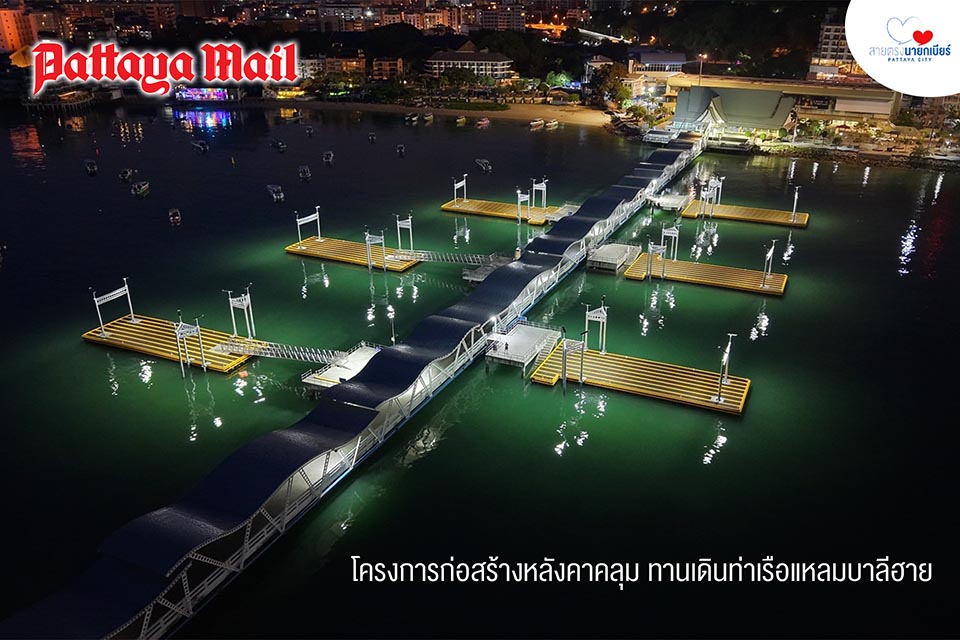
The newly renovated Bali Hai Pier lights up Pattaya’s shoreline, winning hearts and selfies alike. 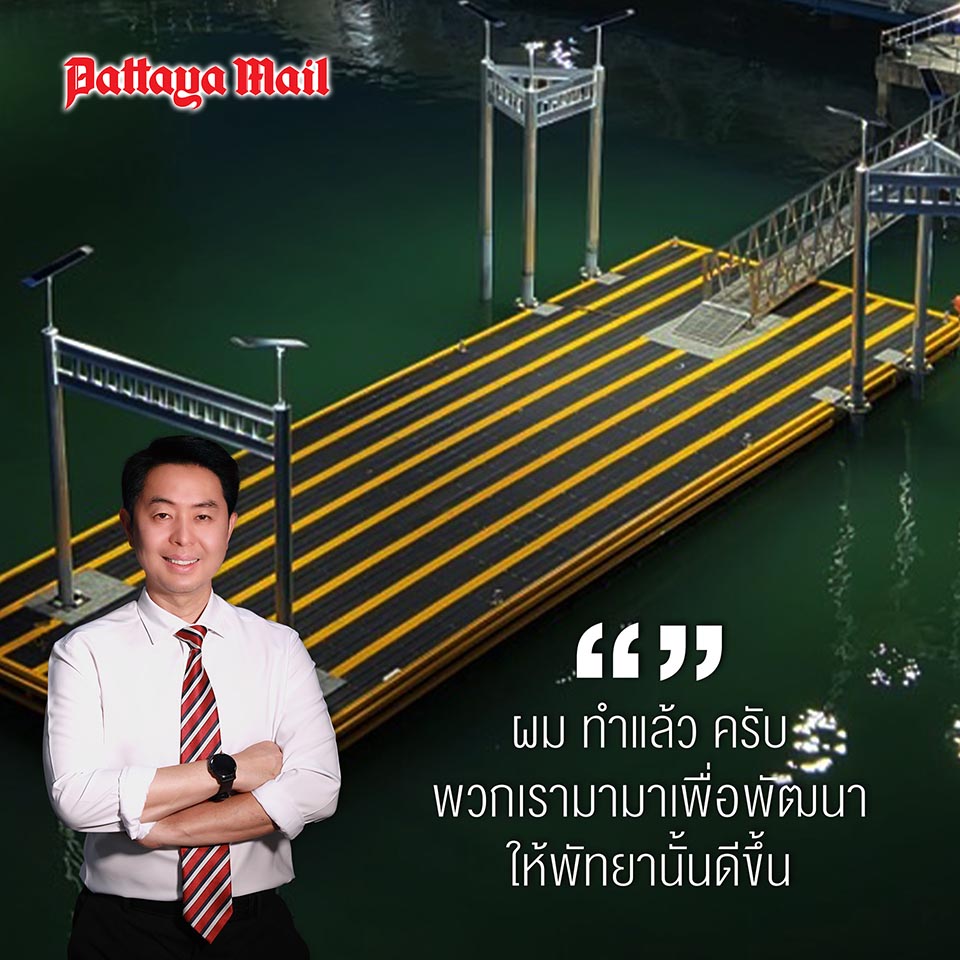
City pride in every detail. With tree trimming, street cleaning, and more projects underway, Pattaya is shaping up beautifully.
10 May 10 2025Daily Newsletterhttps://www.pattayamail.com/?p=500490






